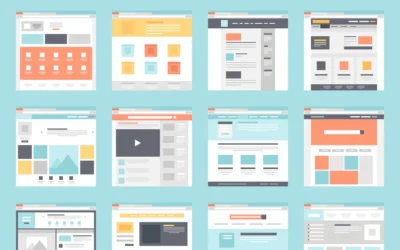Introduction
In today’s fast-paced, ever-evolving business landscape, remaining complacent is not an option. The more information you have on your audience in the form of customer data, the better equipped you’ll be to beat your competitors and offer better products and services. One of the most valuable types of enterprise data is the relationships and interactions that you have with your customers and prospective customers—a concept summarized as customer relationship management and associated with the snappy acronym “CRM.” So, what is CRM exactly, and what are the benefits of CRM for your business?
What Is Customer Relationship Management (CRM)?
Customer relationship management is a catchall term for the various processes and systems that businesses use to manage their interactions and relationships with their customers and prospects.
Breaking down this term into its three constituent parts, you get:
- Customers: Your existing user base, as well as any prospects and leads in your sales pipeline.
- Relationships: The sum total of all your company’s interactions with a customer or lead. This includes many different channels: phone calls, emails, letters, social media, website visits, etc. Sales, marketing, and customer support are the three departments most responsible for cultivating customer relationships, but customers may have contact with other parts of your organization as well.
- Management: The tools, processes, and workflows that help your business stay on top of your customer relationships.
The term “CRM” is also used as shorthand for software platforms and systems that help businesses perform customer relationship management. Examples of popular CRM software include Salesforce, HubSpot CRM, Pipedrive, Zoho CRM, Oracle CRM, and Microsoft Dynamics CRM.
What Are the Benefits of CRM Systems?
By automating and standardizing your customer interactions, CRM systems can offer a great number of benefits to your business. The best systems come with a wide range of features and functionality to support critical business activities such as:
- Sales enablement: CRM platforms can help your sales team identify the most promising leads and achieve more accurate sales attribution (i.e., determining which content or channels are the most effective at converting prospects).
- Marketing automation: With the right CRM system, you can automate a large portion of your marketing workflow, from generating new leads to delivering content for different audiences and segments.
- Data analytics: CRM software can perform analytics and generate reports on the customer interaction data you store. The insights gleaned from these analyses can help you uncover hidden opportunities or identify areas of improvement.
- Data integration: Some CRM systems can perform customer data integration with other files, databases, and sources. The CRM platform can then serve as a “single source of truth” for your customer data and export it to other systems and locations.
These features and functionality can dramatically enhance your business processes and workflows. The potential improvements offered by CRM software include:
- A better understanding of your customers: For one, CRM systems help keep track of all your customers’ salient contact data and demographic information: phone numbers, email addresses, job titles, birthdays, etc. CRM data can also offer insights into the behaviors, opinions, and beliefs of your customers and prospects.
- Improved customer segmentation: As a corollary, understanding your customers better also helps you separate them into valuable segments and audiences for better-targeted marketing.
- Higher customer retention rates: By keeping track of all customer interactions, CRM software helps you identify and retain disgruntled customers, or help bring back old customers into the fold (e.g. people who haven’t made a purchase recently).
According to a study by McKinsey & Company, businesses that are “intensive users” of customer analytics are more likely to be successful in multiple domains. For example, these businesses are 23 times more likely to excel at acquiring new customers and 19 times more likely to be highly profitable.
How Aezion Can Help with Customer Relationship Management
Customer relationship management is one of the most essential functions of any organization, giving you a window into what your customers think about your business. While off the shelf solutions can get you going, many businesses soon find that a more customized CRM or integration with other essential systems is what they need to move their business forward.
Aezion is ready to help. We’re passionate about helping our clients solve their trickiest software development challenges. If you’re in the market for a new CRM solution or exploring how to improve your existing system, we can be with you every step of the way—from roadmaps and strategic planning to development, integration, deployment, and ongoing support and maintenance.
Ready to start your CRM journey? Contact us today to discuss your business goals and requirements.
Related Articles
This is article 4 of a 4-part series on Customer Data Management. You can view the related articles at the links below, or simply click to download our comprehensive Operational Guide to Customer Data Management and Integration White Paper:
- Customer Data Could be Your Most Valuable Asset
- How Marketers Benefit from a Customer Data Platform
- Customer Data Integration: What You Need to Know



